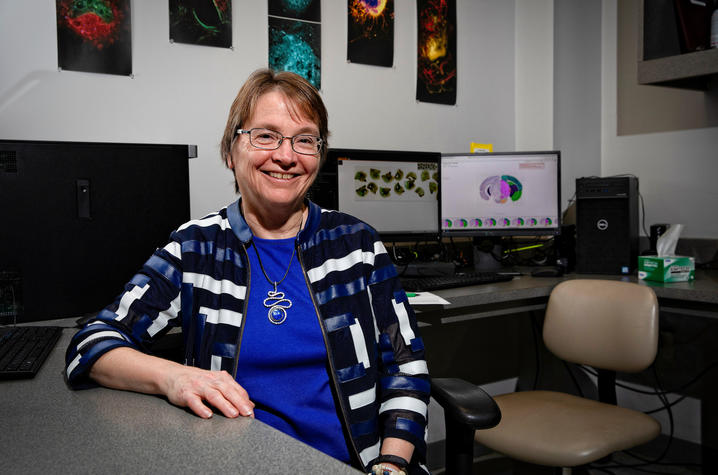Sanders-Brown Director Leads First Human Study of Drug Targeting Brain Inflammation

Linda J. Van Eldik, director of the Sanders-Brown Center on Aging at the University of Kentucky, co-authored a paper reporting the first human clinical study of a drug candidate that suppresses injury and disease-induced inflammation of the brain.
The paper was accepted in February by Clinical Pharmacology in Drug Development and the article published online this week. Clinical Pharmacology in Drug Development is an international, peer-reviewed, online publication focused on publishing high-quality clinical studies, especially those presenting first-time in-human study results.
The article explains how acute brain injuries resulting from trauma or cerebrovascular injury, such as traumatic brain injury (TBI) and intracerebral hemorrhage (ICH), are major medical problems that cause substantial mortality and neurologic damage. The authors state in the article, "Although there have been significant advances in the medical management of patients with acute brain injuries, there is a clear and urgent need for interventions that improve neurologic recovery and outcomes."
To address that need, a small-molecule drug candidate now known as MW189 was developed. MW189 blocks abnormal inflammation in the brain that is known to contribute to injury- and disease-induced neurologic impairments in a number of acute and chronic brain disorders. This study examining MW189 in healthy adult volunteers was performed by a collaborative team from UK, Duke University, and Northwestern University. The work by Van Eldik and the rest of the team is substantial as it is the first time MW189 had been tested in humans. The study was open to healthy men and women between the ages of 18 and 50 years.
The article reports that MW189 was safe and well-tolerated by volunteers, with no clinically significant concerns after either a single dose or multiple administrations of MW189. "This is an important result," said Van Eldik, "because in order to get future FDA approval of any drug for patients, the drug candidate first has to be tested and shown to be safe in healthy volunteers." Van Eldik goes on to say "overall, these studies support further development of MW189 for treatment of patients with acute brain injuries such as TBI or hemorrhagic stroke."
The study was supported in part by an Alzheimer's Association Part the Cloud grant.
More from this series Research Priorities - Neuroscience
Credits
Hillary Smith (Public Relations and Strategic Communications)


